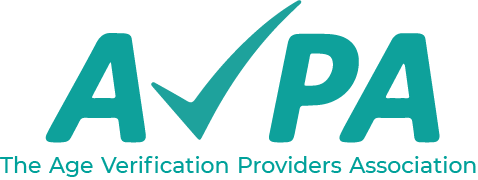As of October 2025, 10 states have passed laws requiring children’s access to social media be restricted or parental consent gained. 6 more are currently injuncted.
Disclaimer: While every effort has been made to ensure that the information contained in this article is accurate, neither its authors nor The AVPA Ltd. accepts responsibility for any errors or omissions. The content of this article is for general information only, and is not intended to constitute or be relied upon as legal advice.
Information is believed to be correct at the time of writing (October 2025)
1st July, 2023
Connecticut SB 3: Requires social media platforms gain parental consent before allowing minors to open accounts.
1st September 2024
Texas HB 18: requires digital service providers such as social media platforms to get consent from a parent or guardian before entering into an agreement with minors younger than 18, including to create an account.
1st October 2024
Maryland Kids Code: requires social media platforms to set default high privacy settings for users under 16, ban the collection of children’s data for personalised content and ensure age-appropriate design.
Utah HB 464 & SB 194: The Social Media Regulation Act requires parental consent for minors to create social media accounts and mandates age verification by social media companies. It also restricts social media use between 10:30 PM and 6:30 AM for users under 18 without parental consent.
17th April 2025
Mississippi Walker Montgomery Protecting Children Online Act, HB 1126: Requires social media platforms to verify users’ ages via “commercially reasonable efforts,” obtain parental consent for minors, limit data collection and targeted advertising for under-18 users, and implement strategies to shield minors from harmful content.
1st July 2025
Minnesota MN HF3488: Sets rules for compensating minors who contribute to online content creation. It requires content creators to keep records and set aside earnings for minors, and it allows for legal action against violators. Also mandates the removal of content featuring minors upon request.
1st January 2026
Virginia SB 854: Requires social media platforms to determine if users are under 16 and limit minors to one hour per day unless parents adjust settings; violations subject to civil penalties.
1st July 2026
Nebraska LB 383: Requires social media platforms to verify users’ ages and obtain parental consent before allowing minors to create accounts, with parents granted rights to monitor activity and control settings.
TBC
New York SAFE for Kids Act: Requires social media platforms to determine users’ ages and gain parental consent before providing minors with algorithmic feeds, and restricts overnight notifications to children without consent.
Florida HB 3: Requires social media platforms to verify users’ ages, obtain parental consent for users under 18, protect minors’ personal data, and limit their exposure to harmful content.
Tennessee Public Chapter 899: Requires social media companies to verify the age of users attempting to create or maintain accounts. It mandates that platforms obtain parental consent for minors under 18 and enforces stricter privacy and safety measures for these users. The law aims to protect minors from potential online harms by ensuring that social media companies comply with these new regulations.
Georgia SB 351: Known as the “Protecting Georgia’s Children on Social Media Act of 2024,” requires social media platforms to implement age verification processes for users, mandates parental consent for minors to create accounts, and restricts social media use in schools.
Louisiana Act 456: Requires social media platforms to impose limitations and restrictions on certain accounts, implement age verification for account holders, and obtain parental consent. Enjoined by Federal District Court.
